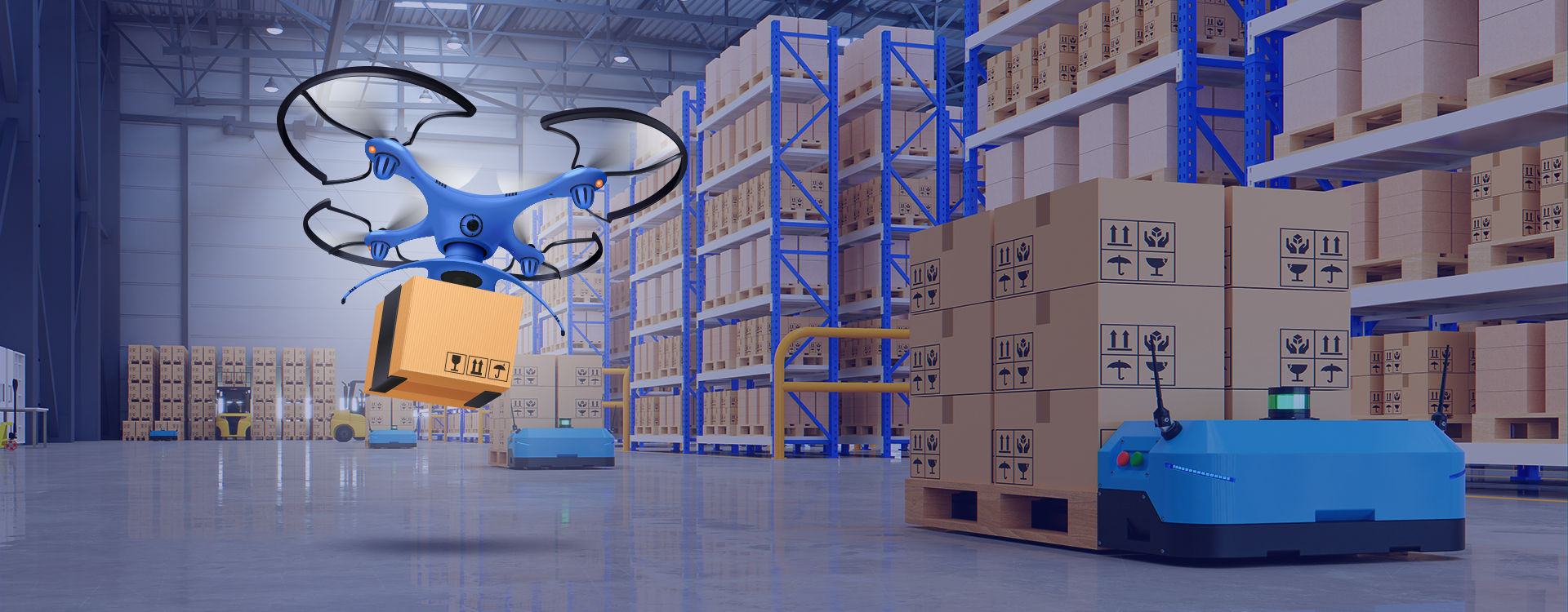As the COVID-19 pandemic disrupted the global supply chain, the logistics industry faced yet another challenge. But this time, it was not underprepared to take on the enormous challenge; it had the critical tool of the latest technology, i.e., artificial intelligence.
As the pandemic forced a faster digital revolution, e-commerce has seen tremendous growth, with retail sales amounting to a global total of $4.28 trillion in 2020. The ease with which customers can purchase all products online has led to a growth in domestic shipping services and innovative options promising fast and efficient delivery, thanks to AI.
The concept of online delivery is nothing new. However, technologies such as artificial intelligence (AI), machine learning (ML) and the Internet of Things (IoT) are playing a crucial role in saving time in getting from one place to another. This is improving the productivity of automated logistics companies on a cost basis.
‘‘
India is slowly becoming home to one of the fastest growing online markets in the world.
How India’s Delivery Start-ups Utilise AI in Logistics
Delhivery
Supply chain logistics service Delhivery is now the leading third-party delivery service provider in India. It gives a wide range of moving assistance such as Express Parcel, B2B and B2C Warehouse and Reverse Logistics.
The Delhivery platform runs and collects 1 billion system functions, 30 million addresses, 4 billion GPS posts and 2.7 million terabytes of image processing data. To meet the emerging e-commerce ecosystem requirements, the company uses artificial intelligence, machine learning, and big data to produce a flexible, responsive and synchronised delivery system.
Dunzo Digital
Dunzo is a Bengaluru -based ultra-local delivery start-up that uses artificial intelligence and machine learning to transform the e-commerce space by creating faster postal services. The platform uses on-demand delivery services of AI to figure out personalised content to decode the best delivery approach.
Changing Logistics of Traditional Mailing System
Machine learning has also significantly changed the Indian postal system. Today, many postal operators rely on barcodes. The use of artificial intelligence to obtain information about the sender and recipient has strengthened the process. In general, more post offices are improving their sorting capacity and labour requirements while sorting speed and affordability to support fast operations.
Pivotal Logistics Sector Functions Changing for Good with Modern Technologies
AI Profitability for Transportation
AI affects warehousing services such as collecting and interpreting information or inventory processing. As a consequence, AI helps in increasing efficiency and getting profit.
EV Vehicular Transformation
Due to IoT and AI, EVs and self-driving vehicles bring changes to the supply chain and help reduce expenses in logistics. AI capabilities are seriously ramping up company efficiencies in the areas of predictive demand and network planning.
Forecasting Industry Trends
Having a technology for specific demand forecasting and capacity planning allows companies to be more proactive. Industry can modify how supplies are used for maximum benefit, and AI can do these equations much faster than ever earlier.
What’s in it for New and Small Businesses?
Technologies provide an opportunity for different optimisation levels in production, logistics, warehousing and last-mile delivery that could become a reality very soon. Models like demand delivery will help consumers have their goods delivered where and when they need them by using flexible courier services.
With the increasing demand, more opportunities will open up for businesses. Start-ups aiming to scale up their progress in this segment can vigorously adopt these technologies by fetching support from the tech industry and driving to the last mile of success.




